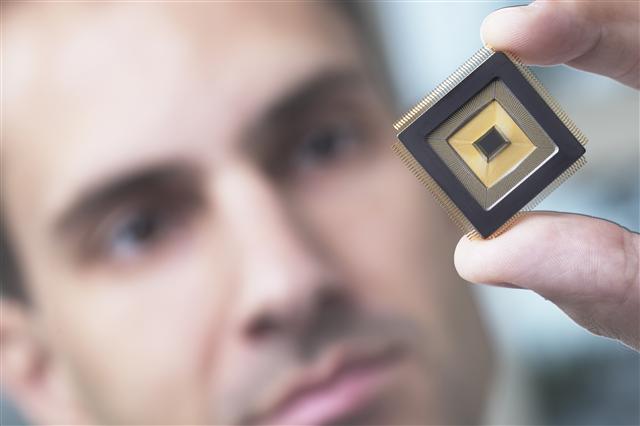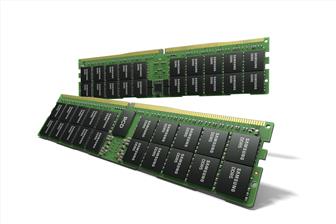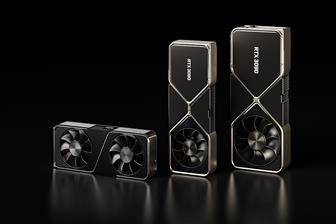
Royal Philips Electronics has announced development of a digital silicon photomultiplier technology that will allow faster and more accurate photon (the basic quantum unit of light) counting in a wide range of applications where ultra-low light levels need to be measured.
Areas where the new technology could have a major impact include medical imaging, in particular positron emission tomography (PET), and in-vitro diagnostic tests such as DNA sequencing and protein/DNA microarrays, the company said. Other relevant areas include high-energy physics, night-vision systems and other applications that currently use light detectors that are based on so-called photomultiplier tubes.

Samsung HKMG DDR5
Samsung Electronics has expanded its DDR5 DRAM memory portfolio with a 512GB DDR5 module...
Photo: Company

Nvidia GeForce RTX 30 series GPUs
Nvidia's GeForce RTX 30 series GPUs are powered by the company's Ampere architecture. The...
Photo: Company

Apple HomePod mini
Apple's HomePod mini is the newest addition to the HomePod family. At just 3.3 inches tall,...
Photo: Company

Apple 13-inch MacBook Pro with Magic Keyboard
Apple has updated the 13-inch MacBook Pro with the new Magic Keyboard for an improved typing...
Photo: Company

Apple iPad Pros
Apple's new iPad Pros comes with the latest A12Z Bionic chip, an ultra-wide camera, studio-quality...
Photo: Company
- Mature-node foundries face overcapacity from China (Jan 2) - EE Times
- Quobly forges strategic collaboration with STMicroelectronics (Dec 12) - Company release
- SemiKong, the first open-source semiconductor LLM, claims to bring new chips to market 30% faster (Dec 27) - TG Daily
- 2024: The year AI drove everyone crazy (Dec 26) - Ars Technica
- China becomes a contender in quantum computing (Dec 27) - EE Times
- NXP to acquire automotive networking pioneer Aviva Links (Dec 17) - Company release
- Luc Van den hove: Aim high, be ambitious, but stay humble (Dec 19) - EE Times
- Intel shortlists suitors for programmable chip arm Altera (Dec 20) - Bloomberg
![]() The Kumamoto model's potential: ex-MITI official urges Japan-Taiwan-US chip alliance
The Kumamoto model's potential: ex-MITI official urges Japan-Taiwan-US chip allianceJapan's semiconductor revival must not only involve Taiwan but also include strategic cooperation with...
![]() 2024 Review
2024 ReviewAs 2024 comes to a close, we look back at the major topics and events across multiple industry sectors, including EVs, AI, semiconductors, servers, and...

Global investment plans of Japanese IDMs
Geopolitical tensions prompt Japanese IDMs to gather capacities in Japan's Kyushu and Tohoku regions and prioritize their OSAT...

CSP in-house development of ASIC accelerators
Google TPUs will see a share of over 70% in the in-house developed cloud ASIC accelerator market in 2024; an all-optical network...

AI chip market outlook 2023-2028: Insights from demand and supply perspectives
The growing demand for AI computational power is accelerating advancements in hardware and chip technology, necessitating innovation...





